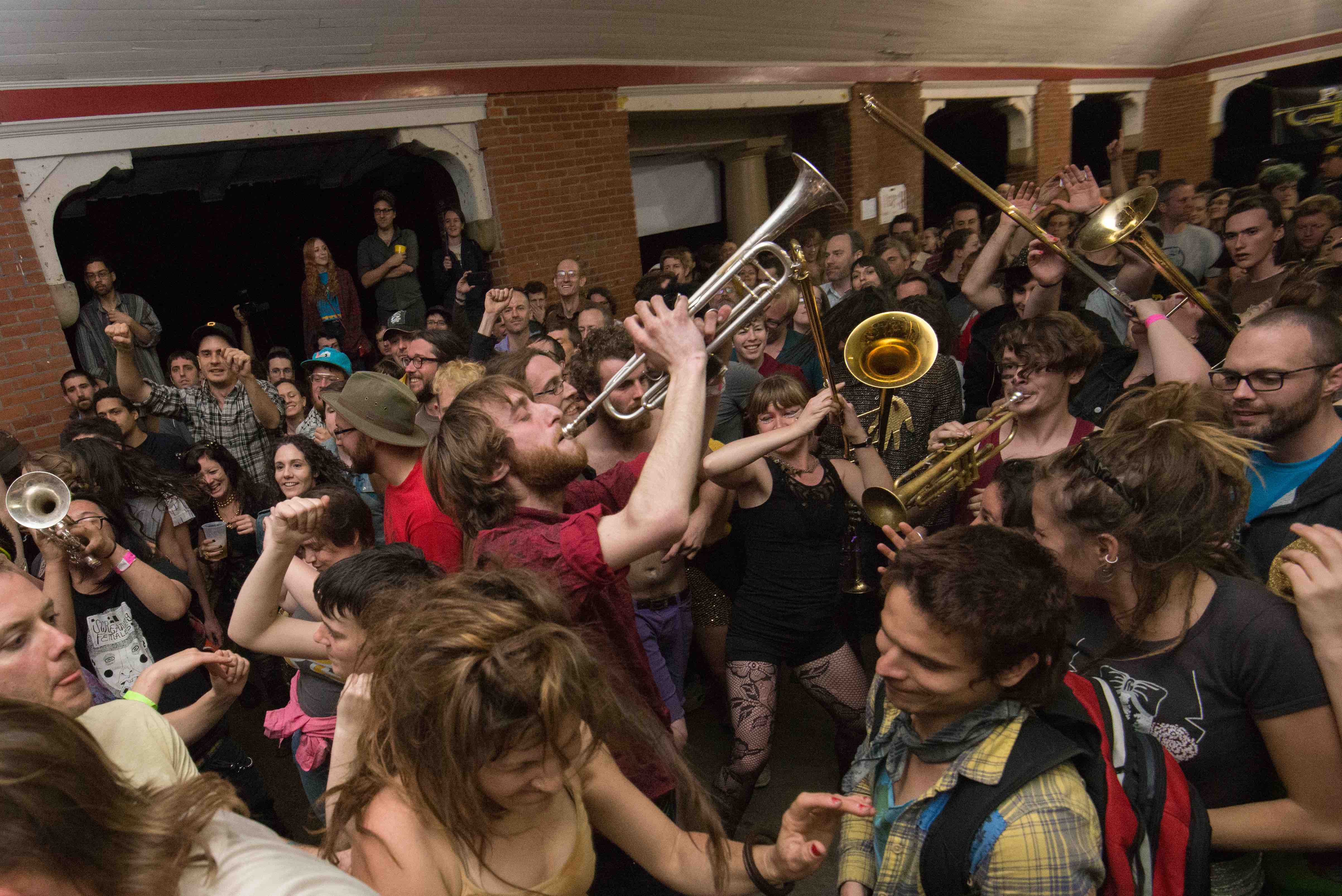PROVIDING
Providing the means of production guides listening and performing toward social outcomes. This is one of the most influential aspects of musical labor as it determines who can be heard and who is allowed to hear them. The good produced by musical labor is the experience and the social affordances it engenders. MEL has explored this idea on multiple scales—from public music festivals drawing thousands of participants to educational programs promoting public performance. MEL is committed to providing music as both a public good and a means of personal expression. Below are descriptions of MEL projects in this area.
Meeting of the Zurladji
Organized in the village of Ratevo in the Malesevski region of North Macedonia in 2022, The Meeting of the Zurladji celebrated the rich tradition of zurla and tapan music and the Romani families that perform it.
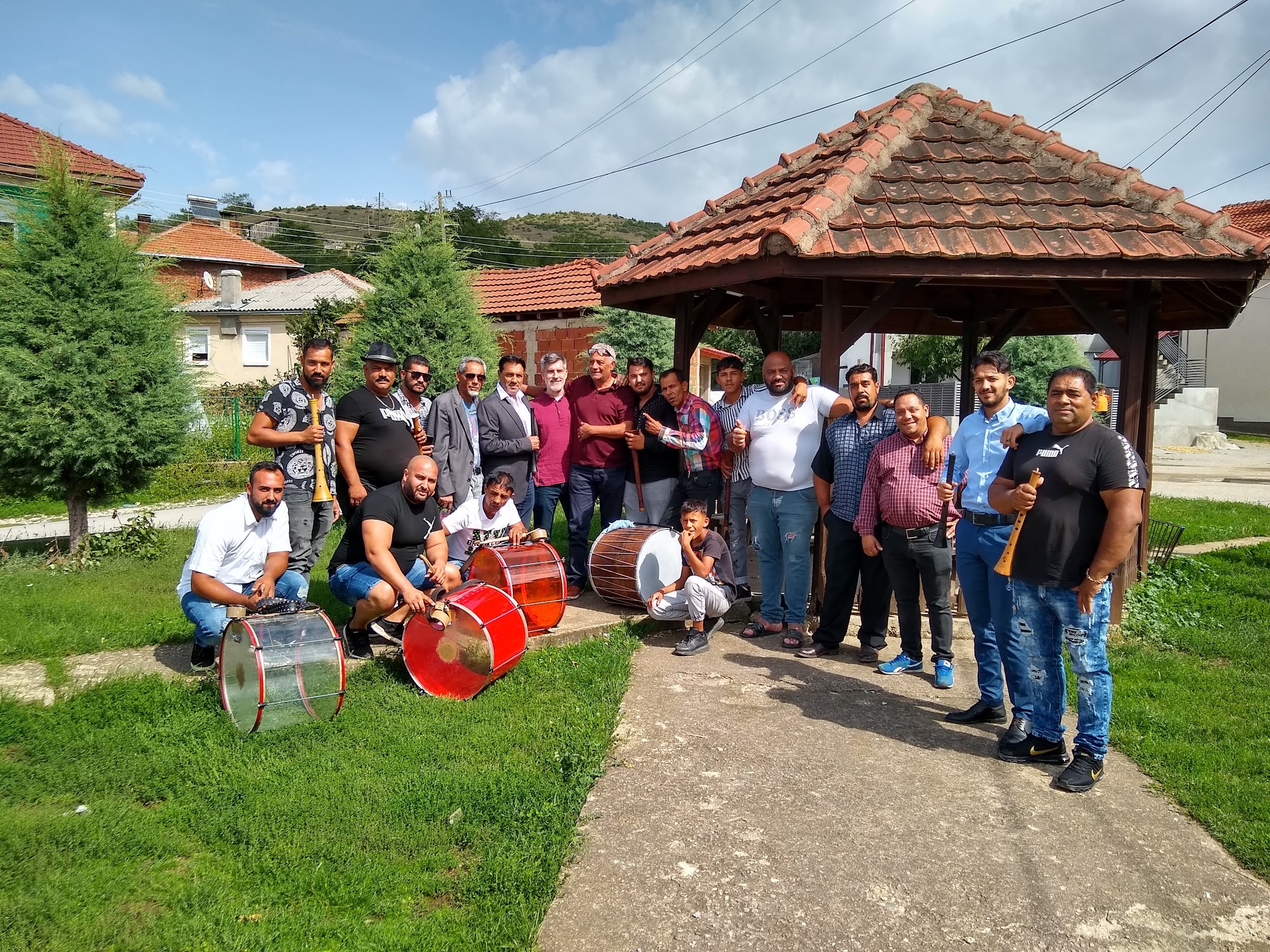
Pittonkatonk
Pittonkatonk was created in 2014 from a dialogue on how musical labor and music as a commodity shape social relationships and music practices in capitalist society. By promoting music as a social practice that brings people together to develop positive individual and social identities, Pittonkatonk created spaces around Pittsburgh where the audience and musicians achieve important collective identities, celebrate diversity, and collaboratively work for common goals.
Pittonkatonk was made possible through non-profit grants, donations, and volunteerism, and in each of these four years, the project was fiscally solvent. There was no admission fee, no corporate sponsors, nothing was for sale, and every musician was paid for performing.
It was a potluck event where people brought food, drink, music, dancing, and the desire to come together to celebrate what music and community really can be. For four years (2014-2017), Pittonkatonk successfully resisted commercialization and created a transgressive space of musical and political action.
During this time,
attendance at the May Day event grew from around one hundred to a few thousand
participants. We connected people with national and local musicians, activists,
and educators to empower them to use their love of music to engage the world
around them. You can read about what Pittonkatonk was about and what we
accomplished in:
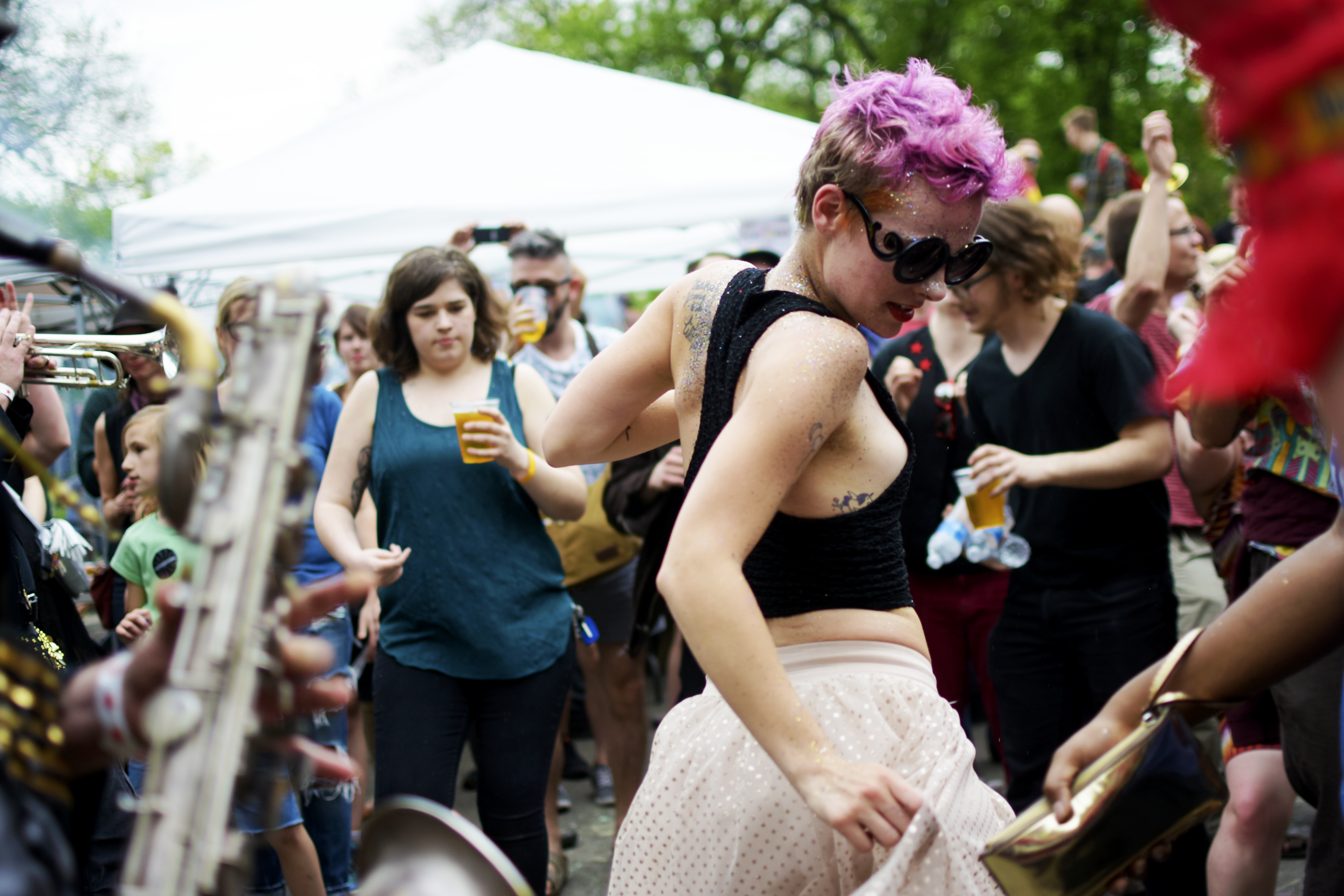
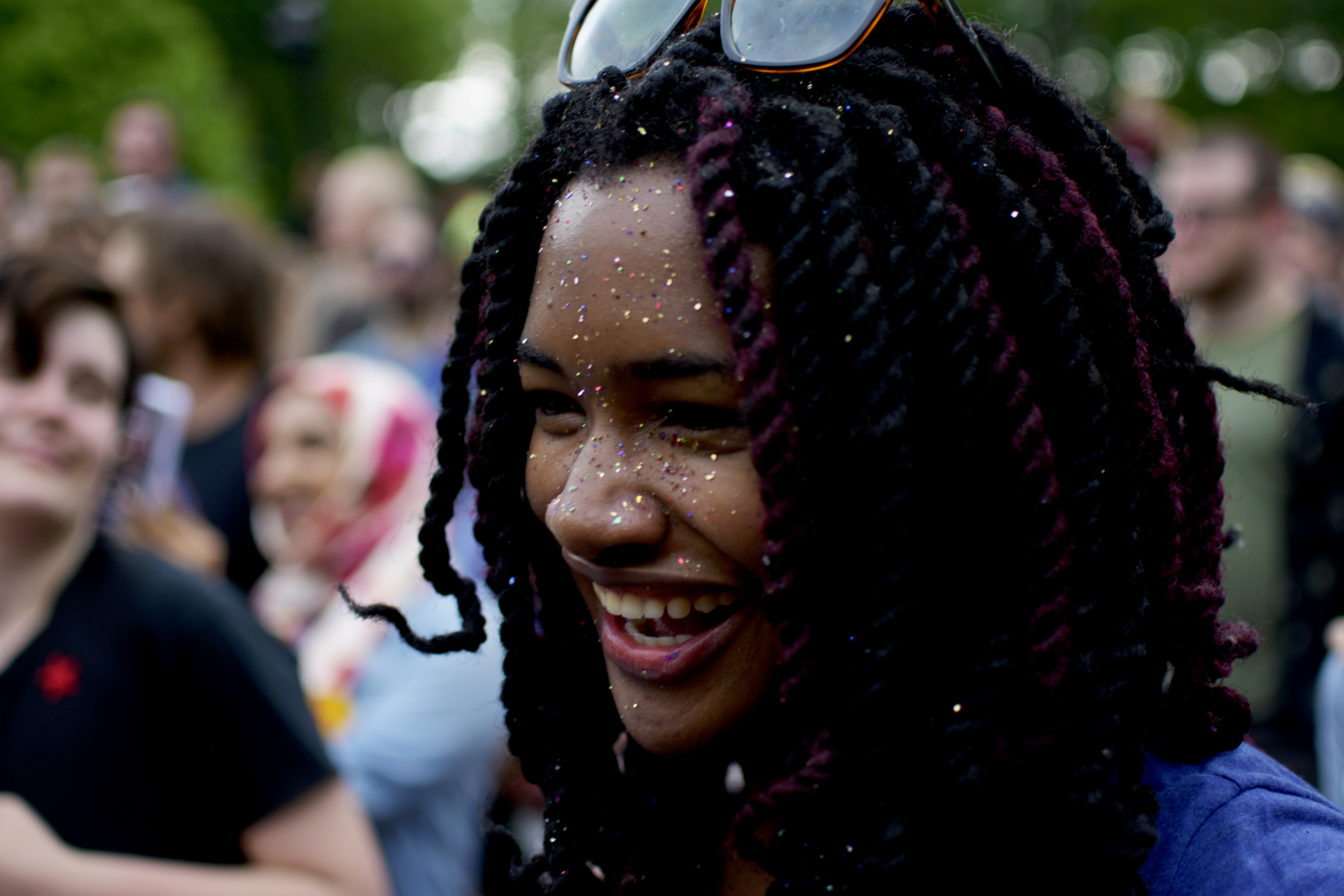
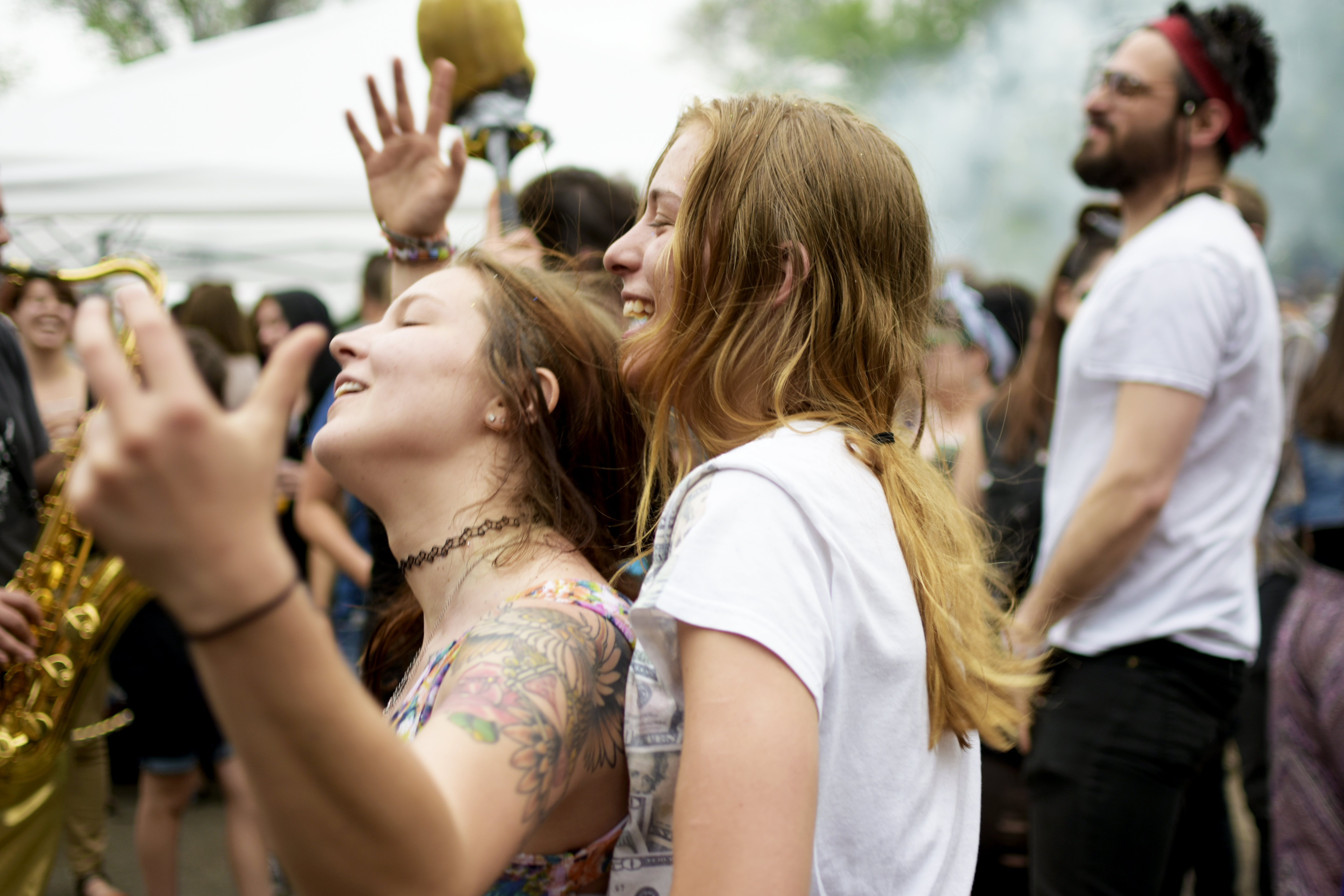
Balkan Music and Culture: Sounds of Past and Present
In 2018, we organized a symposium to discuss how ethnic, gender, class, and national identities intersect to create dynamic musical practices in the Balkans. Featured speakers include Slovenian ethnomusicologist Ana Hofman, anthropologist and dance leader Alex Marković, Macedonian Rom choreographer Milo Destanovski, and clarinetist Jessica Ruiz. The program continued with KAFANA PGH, a Balkan dance party at Los Sabrosos Dance Co in Garfield with the Pitt Carpathian Ensemble. Performances featured traditional Macedonian Zurla/Tapan music, Balkan dances, and electroacoustic sounds by the local ensemble Bombici. Attendees were invited to join in improvisations and singalongs.
Music and Labor Roundtable
The 2014 and 2017 Music and Labor Public Roundtables were organized to discuss a number of issues: being a working musician, how music has been used in labor movements, the roles race and economy play in how musical communities survive, the past and present traditions of making music, D.I.Y practices, and how technology can help or hurt musicians. All were discussed from the perspective of being in Pittsburgh, Pennsylvania. We aimed to create solidarity and understanding about how we do the work we do. The panel of local musicians and activists engaged with audience participants to understand the material conditions in which music-making can occur, the work involved in making music, and the market value of that work.
